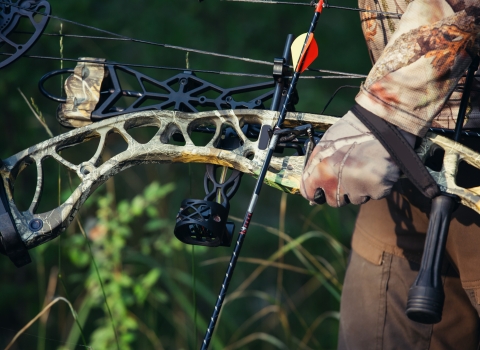The U.S. Fish and Wildlife Service’s Incident Command Team, in collaboration with partner agencies, continues to respond to Highly Pathogenic Avian Influenza (HPAI), also known as bird flu, in the Southwest flock of California condors.
Partners and stakeholders have initiated vaccine trials, are working to improve the ability of flock managers in swiftly responding to potential future HPAI outbreaks, determine appropriate timing for the release of birds in care, and support field monitoring. The Incident Command will provide updates on the incident and field operations in this format on a routine basis until further notice.
Incident Update
On May 16, USDA Animal and Plant Health Inspection Service announced approval of emergency authorization for the use of a vaccine to help protect California condors against HPAI. Before vaccinating the condor flock, the vaccine will be evaluated through a trial, which was collaboratively developed by the Service, USDA APHIS and U.S. Geological Survey.
Trials began on May 16 with the vaccination of 20 black vultures in two cohorts, with 8 additional birds as controls, as a surrogate species. The trial in vultures will not only help determine the safety of the vaccine, which was developed for poultry, but will also inform the level of vaccine-induced immunity. Depending on the results of the vulture trials, the second step will be to implement the trial on twenty-five captive California condors.
In the upcoming days, we will closely monitor the black vultures’ response to the vaccine and evaluate the results before conducting similar trials in condors. Samples collected during the trial will be sent to the USDA’s Southeast Poultry Research Center for analysis of HPAI antibodies and immune response. If proven safe with a desired level of immune response, vaccinations may help the Service and our partners address this threat and reduce the impact of HPAI to both the free-flying birds and captive condors.
On May 9, an egg salvaged from parents impacted by HPAI successfully hatched. The chick, determined to be a female, is healthy and tested “negative” for HPAI. On May 16, the chick was transferred from Liberty Wildlife to The Peregrine Fund’s World Center Birds of Prey. The chick was placed with foster parents on May 17, and the pair accepted the new chick and are actively caring for her. Being raised by foster parents greatly increases the likelihood this bird will one-day be returned to the wild in Arizona.
Status of HPAI in the Southwest Flock as of May 19, 2023
Changes are indicated in bold and italics in our reporting below. Please note the number of deceased and confirmed HPAI positive birds may not match as the mortality count includes unrecoverable birds that will not be tested for HPAI and rescued birds in care.
Vaccination trials:
- Birds vaccinated: 20 vultures
Mortality:
- Total mortality: 21 condors
- Deceased and recoverable: 17 condors
- Deceased and unrecoverable: four condors
Rescues:
- Number of condors in care: five condors
HPAI Results:
- Total condors tested: 21 condors
- Confirmed HPAI positive: 15 condors including two of the rescued condors at Liberty Wildlife (four samples remain pending)
- Confirmed HPAI negative: two condors in care at Liberty Wildlife
Breeding pairs impacted: eight breeding pairs (13 individuals deceased)
Field Operations
Partners are caring for recovering birds, evaluating care and quarantine facilities, identifying where improvements are needed and developing strategies should another HPAI outbreak occur in condors.
Rescued condors 757, 982, 1061 and 1108 are in care at Liberty Wildlife and partners will determine when it safe to release them back in the wild.
The scheduled monitoring flight for May 15 was postponed due to unfavorable weather. Another flight has yet to be scheduled. Fortunately, access to terrain for monitoring activities is improving with snowmelt and warming temperatures.
The Peregrine Fund continues to manage the flock to avoid congregation of birds through discontinuation of communal feeding sites and watering areas.
The California Condor Recovery Program also continues to evaluate when conditions will allow for condor releases to resume.


